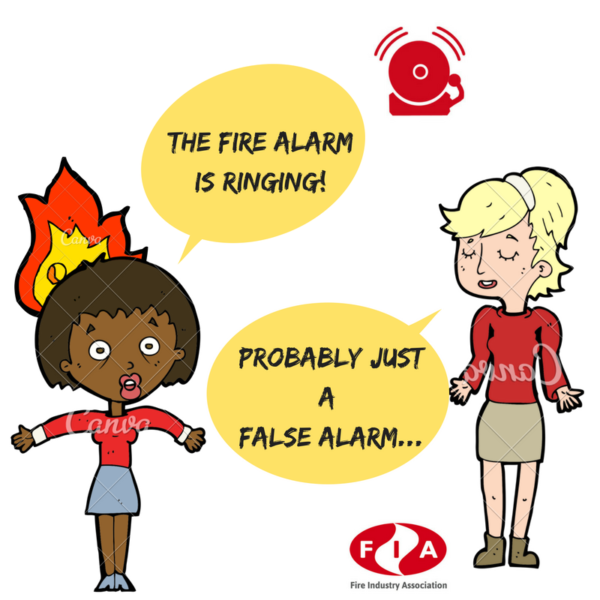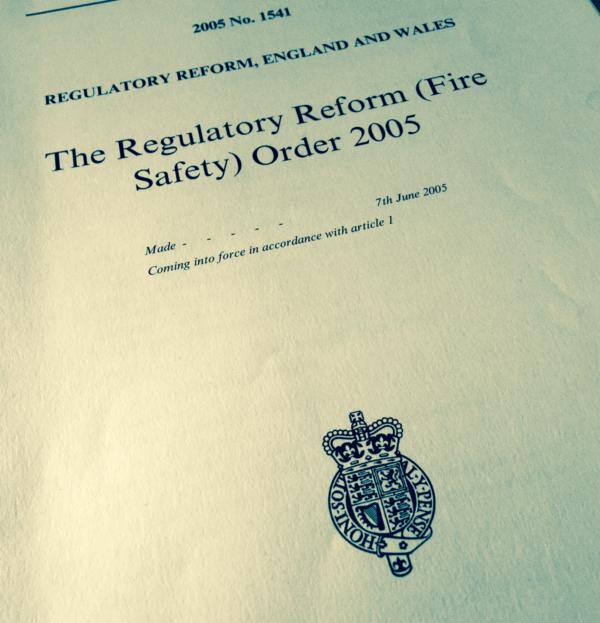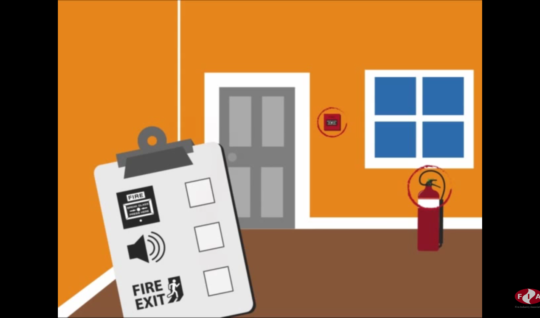- Homepage
- News
- Blogs & Articles
- Do employers give their staff enough fire safety training?

Do employers give their staff enough fire safety training?
Like it? Share it!
09 January 2017 by FIA Team, FIA Team
We’ve all been there. Staff training on what to do in the event of a fire.
Maybe it was death by PowerPoint, maybe it was just a quick verbal reminder of the nearest fire exit, or maybe it was a short online questionnaire to remind you of the basics. The thing is, employers provide their staff with vastly varying amounts of training as regards fire safety.
Sometimes it’s a constant stream of information and reminders, and with some employers it’s more of a damp rag forgotten at the back of a very grotty cupboard (I digress slightly, but I think the metaphor speaks for itself).
On the whole (though it is dangerous to generalise) the feeling towards health and safety matters in the UK is that the measures are necessary, but quite often low priority. We have better things to do with our time. But that can quite often be a huge mistake.
Admit it – how many times has a fire alarm gone off and you’ve turned to the person next to you and just shrugged?

But if you are an employer, allowing attitudes like this to exist in your staff could be extremely dangerous. In a classic case of ‘Oh it is probably just a false alarm’ shrugging, one clothing retail store on London’s busiest shopping street caught fire. Reports from the time tell the tale of staff not reacting at all to the fire alarm, simply continuing to shrug it off as a false alarm whilst shoppers wandered casually around the clothing giant’s flagship store, blissfully unaware of the raging fire on the upper floor. It was only when shoppers on the upper floor panicked and started running out of the building that the staff finally twigged that there was a problem.

You can probably imagine the abject chaos that ensued: confused shoppers wondering if there really is a fire, other shoppers screaming and pushing to escape, staff panicking as they try to establish order. Screaming, shouting, fire burning through the building.
The situation was in so much disarray and staff were so underprepared to deal with a fire that apparently, shoppers and staff from other stores opposite ran into the shop to tell the ‘Oh it’s just a false alarm’ shrugging staff that their building was, in fact, on fire. By the time staff reacted, it was too late: panic and pandemonium was rife throughout the building.
The clothing retail giant had to close their store and was fined the maximum penalty for breaches of fire safety law of £400,000.
I use this story simply to illustrate how dangerous it can be to consider training of employees on fire safety to be low priority.
But what level of training is appropriate? How much time should employers spend on training their staff and reminding them of the procedures? Is one PowerPoint presentation at the start of the year for all staff enough?

“Under the Regulatory Reform (Fire Safety) Order 2005, the Responsible Person must ensure that all employees are provided with adequate safety training. Some of the training can be just a power point presentation but some really needs to be practical,” explains Will Lloyd, Technical Manager.
It needn’t be complex.
“How do you train someone to evacuate a building in the event of a fire and report to a muster point? Easy. Set the fire alarm off and tell people what to do and where to go. No need for a boring PowerPoint.”
Sometimes the best way to train others is to show, not tell. Let people actually have a go at what to do in the event of a fire.
“How confident would you be in using a portable fire extinguisher to put out a small fire?” asks Lloyd. “A lot more if you had training on how to correctly use one. A small fire can be prevented from becoming a bigger fire if it’s tackled with the correct extinguisher. But people need to be trained to know which is the correct extinguisher for the type of fire. And trained to use them.”
So that means letting people actually handle a fire extinguisher, rather than expecting them to remember from a verbal instruction.
“This training should be repeated periodically to ensure everyone stays familiar with what to do in the event of a fire,” explains Lloyd.
How often depends on your fire risk assessment and the needs of your staff – for example, any new staff will be unfamiliar with the routines.
Thankfully, there are tonnes of resources available to help employers better understand what they can do to improve fire safety knowledge within their staff.
First of all, employers need to understand their own responsibilities when it comes to fire safety – there are laws that determine what actions should be taken and what will happen should an employer fail to follow these. This could all be learnt by taking this training course.
Or watching this video.

Video
Responsible for Fire Safety?
Fire safety explained
Or reading these guides:
Alternatively, phone the FIA for advice: 0203 166 5002.
What's your view? Do employers give their staff enough fire safety training? Tell us on Twitter using #FIAhaveyoursay.
TAGS
-

FIA Team
FIA Team
Related posts
-
Are Your Fire Alarms Still Protecting You? Understanding When Replacement Is Necessary
17 February 2026
By Robert Sidle, Marketing Executive
-
How You Can Reduce The Risk of Fires in Your Workplace
26 January 2026
By Robert Sidle, Marketing Executive
-
Fireside Chat with Managing Director and Founder of RayFire Services Ltd, Ray Hope
25 March 2024
By Charlotte Brill, Content Marketing Executive
Related news
-
Fire Enforcement Notices Served on Hinkley Point C Contractors
25 February 2026
-
Guidance on IP Connectivity and Remote Services
19 January 2026
-
New FIA Guidance on BS 5839-1 Fire Alarm Categories
23 December 2025
